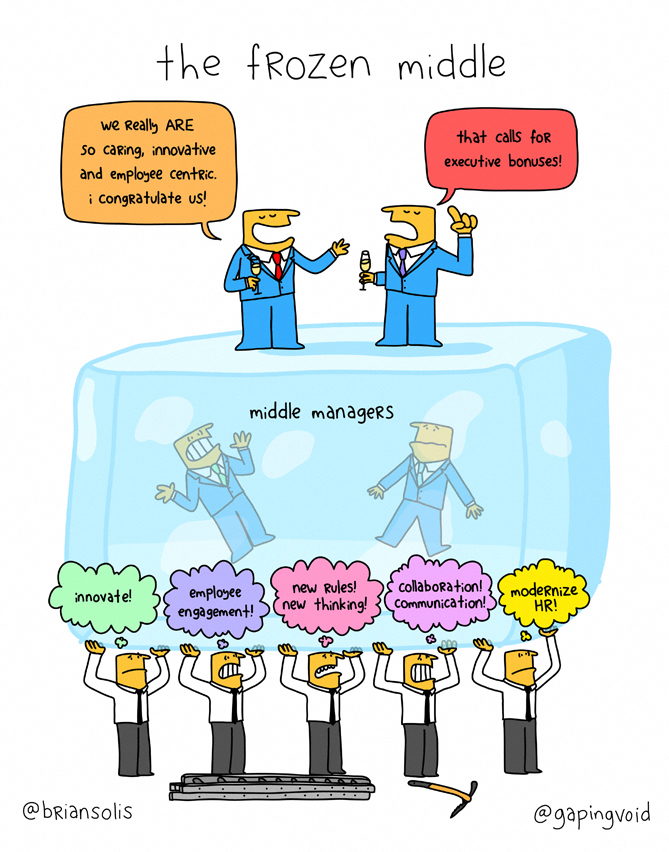
My friend Alison DeNisco Rayome is Senior Editor at TechRepublic. We recently talked about how progressive retailers are leading digital transformation. I wanted to share our conversation with you here as I feel the ideas (and links) can help any organization thrive in an era of digital Darwinism!
TechRepublic: Generally speaking, where would you say most companies stand in terms of digital transformation efforts right now?
Brian Solis: I’m recently published the 2018-2019 State of Digital Transformationand its surprising how slowly companies are advancing. In 2016, I also developed “The 6 Stages of Digital Transformation” as a maturity framework to help companies benchmark their progress compared to other organizations I’ve studied. When you ask companies where they place themselves on chart, they tend to place themselves further along than they really are. When you ask specific questions that represent key milestones where advancing companies focus and excel, you learn that a majority of companies have much work to do.
The recurring themes where companies can improve include:
- Looking at technology as an enabler and not the solution.
- Understanding consumer digital and mobile behaviors, preferences and expectations.
- Understanding digital employees and how they are critical to improving internal engagement and productivity.
- Identifying expertise needed to compete for the future, hiring for expertise gaps and training/retraining existing personal.
- Demonstrating business impact and ROI of digital transformation at the executive level to earn top-down support and resources.
- Expanding digital transformation from siloed investments to lead unified, enterprise-wide modernization.
- Investing in outside innovation to plug into thriving ecosystems and advance internal capabilities and open new markets.
Are you seeing many companies in non-technical realms, such as beauty, digitally transforming as well?
I see that many non-technical companies are becoming digitally aware and proficient. Some are going further. For example, Starbucks and Dominos have stated that they are first and foremost technology companies. In the beauty and fashion space, Burberry, LVMH, L’Oreal, Sephora, among many others are publicly documenting their digital transformation over the years. This is a sign of companies that are evolving from the “Strategic” to “Converged” and “Innovative” stages of digital transformation.
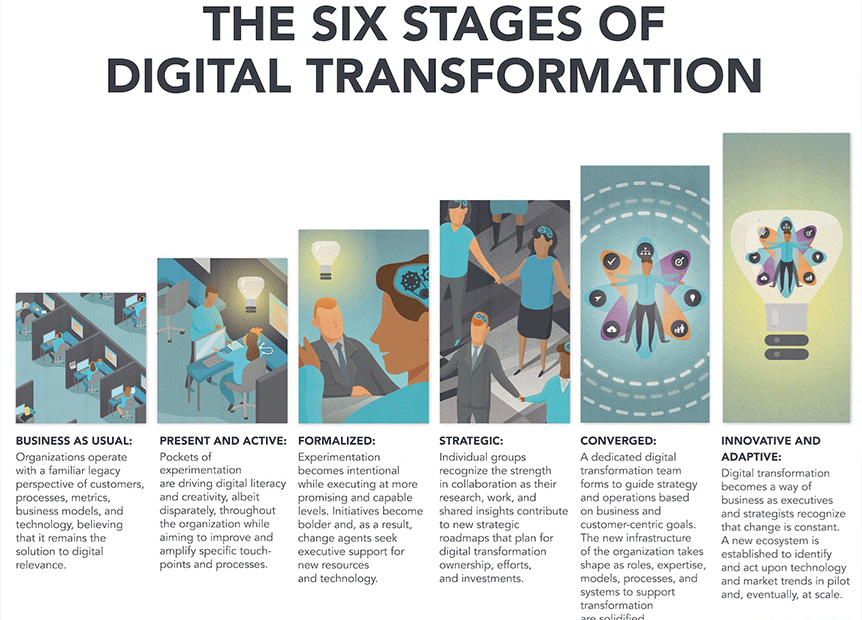
Sephora has added things like AR experiences in the store for people to try on makeup with facial recognition technology. Would you say that’s unique for the beauty space?
Sephora is among the most advanced and advancing retailer and beauty companies that I’ve studied over the years. The company’s use of AR is just one of the many investments the company is making in digital disruption. At the same time, the company’s approach is only part technology. Sephora is also diversifying its approach to digital transformation by focusing on the areas and more where other companies are struggling as listed above.
Specifically, the company has studied digital customers to understand “her” needs and beauty and social aspirations, how “she” feels and shops, and more so, they adapted models, processes, and resources internally to compete with purpose.
Sephora also recognized that consumers aren’t done evolving. As such, the company opened an innovation labin San Francisco to experiment with designing mobile, social, digital and in-store shopping into a cohesive and value-added experience. The lab also participates in the San Francisco/Silicon Valley startup scene to identify new technology trends, attract talent and experiment with new pilots.
What advice do you have for a company that is in a space like beauty or retail and wants to ensure that they are staying relevant digitally?
Believe it or not, companies aren’t placing a sense of urgency on digital transformation or understanding digital customers and employees. It’s difficult to do when companies are still generating revenue while also serving shareholders/stakeholders often focused on short-term returns. Making big changes and investments eats into resources and profits.
I highly recommend that companies understand how consumer behaviors, preferences, expectations and values are changing as digital impact’s their life and work. I also recommend plugging into technology (and societal) trends to understand what’s possible and impactful in practice. At the same time, executives must empower employees to lead digital transformation efforts. They must escalate their work to the C-Suite. And, they too must learn about how to become digital leaders and create digital cultures that lead to innovation not just continuous reactions to market shifts.
Additionally, I outlined 11 trends to help brands compete in an era of digital Darwinism:
1: New (human) perspective is needed to see the actual future that is playing out.
2: Cater to “Accidental Narcissists” as I call them and compete in the on-demand economy.
3: Compete for customer experience…not CX…there’s a difference and one is customer-centered.
4: Become payments agnostic. Don’t impose false standards to compete against other systems to reduce fees. Be open.
5: Understand social commerce and design targeted initiatives that drive shared experiences, reviews and referrals online.
6: Invest in the trust economy, be transparent, and earn reciprocity through facilitation of open engagement and commerce.
7: Balance webrooming and showrooming by investing in mutually-beneficial experiences and outcomes on both sides.
8: Explore new technologies to re-imagine the in-store/online experience blurring the lines between digital/brick-and-mortar.
9: Study the digital and specifically the mobile customer journey to uncover friction, update aging touchpoints and cater to mobile-first and mobile-only customers.
10: Invest in innovation teams or innovation centers to discover new competition and possibilities to test in learn in more rapid prototyping programs (outside of risk-averse culture).
11: Take a fresh look at space and consider it a blank slate. Ask yourself and your team, what if we could build a physical store that brought the digital and real-world together to deliver intuitive and indispensable experiences? That’s what Amazon is doing.
Brian Solis, Author, Speaker, Futurist
Brian Solis is principal analyst and futurist at Altimeter, the digital analyst group at Prophet, Brian is a world renowned keynote speakerand 8x best-selling author. In his new book, Lifescale: How to live a more creative, productive and happy life, Brian tackles the struggles of living in a world rife with constant digital distractions. His model for “Lifescaling” helps readers overcome the unforeseen consequences of living a digital life to break away from diversions, focus on what’s important, spark newfound creativity and unlock new possibilities. His previous book, X: The Experience When Business Meets Design, explores the future of brand and customer engagement through experience design.
Please, invite him to speak at your next event or bring him in to your organization to inspire colleagues, executives and boards of directors.
Follow Brian Solis!
Twitter: @briansolis
Facebook: TheBrianSolis
LinkedIn: BrianSolis
Instagram: BrianSolis
Pinterest: BrianSolis
Youtube: BrianSolisTV
Newsletter: Please Subscribe
Speaking Inquiries: Contact
Brian Solis, Author, Speaker, Futurist
Brian Solis is principal analyst and futurist at Altimeter, the digital analyst group at Prophet, Brian is a world renowned keynote speakerand 8x best-selling author. In his new book, Lifescale: How to live a more creative, productive and happy life, Brian tackles the struggles of living in a world rife with constant digital distractions. His model for “Lifescaling” helps readers overcome the unforeseen consequences of living a digital life to break away from diversions, focus on what’s important, spark newfound creativity and unlock new possibilities. His previous book, X: The Experience When Business Meets Design, explores the future of brand and customer engagement through experience design.
Please, invite him to speak at your next event or bring him in to your organization to inspire colleagues, executives and boards of directors.
Follow Brian Solis!
Twitter: @briansolis
Facebook: TheBrianSolis
LinkedIn: BrianSolis
Instagram: BrianSolis
Pinterest: BrianSolis
Youtube: BrianSolisTV
Newsletter: Please Subscribe
Speaking Inquiries: Contact
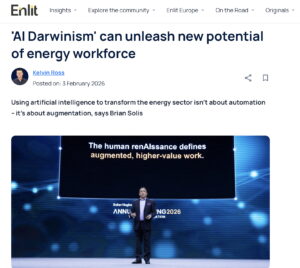
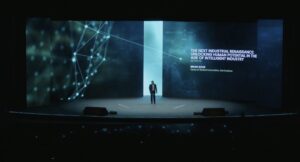
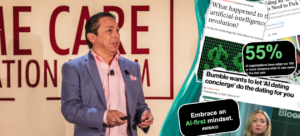


Leave a Reply